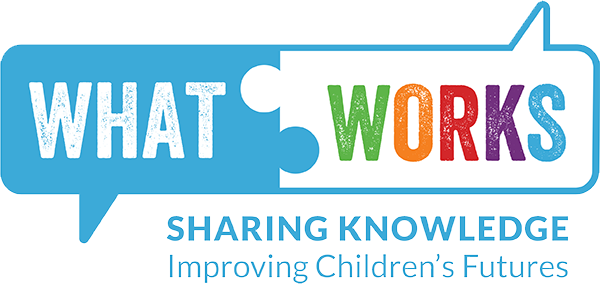Incredible Years Toddler

The Incredible Years (IY) Toddler programme is for parents (typically living in disadvantaged communities) with a child between the ages of two and three.
Parents attend 14 weekly group sessions where they learn strategies for responding sensitively to their child and discouraging unwanted behaviour. Two facilitators (QCF-Level 7/8) lead parents in weekly two-hour group discussions of mediated video vignettes, problem-solving exercises and structured practise activities addressing parents’ personal goals.
EIF Programme Assessment
Child outcomes
This programme can affect outcomes for children in Active and healthy, physical and mental wellbeing.
According to the best available evidence for this programme's impact, it can achieve the following positive outcomes for children:
Preventing crime, violence and antisocial behaviour
Improved behaviour
based on study 1
This programme also has evidence of supporting positive outcomes for couples, parents or families that may be relevant to a commissioning decision. Please see About the evidence for more detail.
Who is it for?
The best available evidence for this programme relates to the following age-groups:
Toddlers
How is it delivered?
The best available evidence for this programme relates to implementation through these delivery models:
- Group
Where is it delivered?
The best available evidence for this programme relates to its implementation in these settings:
- Home
- Children's centre or early-years setting
- Primary school
- Community centre
- Out-patient health setting
How is it targeted?
The best available evidence for this programme relates to its implementation as:
- Targeted indicated
Where has it been implemented?
- United Kingdom
- Ireland
Ireland provision
Ireland evaluation
About the programme
What happens during the delivery?
How is it delivered?
- Incredible Years Toddler is delivered by two co-leaders to groups of approximately 12 families in 14 sessions of approximately two hours each.
What happens during the intervention?
- During the sessions, parents practise child-directed play skills that build positive relationships and attachment; strengthen more nurturing parenting using social and emotional coaching methods; encourage language development and early social skills; support early learning; establish predictable routines, rules and home-safety proofing; and reduce behaviour problems. Parental social support is strengthened by weekly facilitator calls, parent-buddy calls and group-process methods.
- IY Toddler can be combined with Incredible Years Advanced for families with more complex issues. IY Advanced is a 10 to 12-week add-on component which covers self-management and mental-health issues.
What are the implementation requirements?
Who can deliver it?
- The practitioners are two co-leaders with NFQ-9/10 level qualifications that could be psychologists, social workers, nurses or physicians.
What are the training requirements?
- The practitioners have 24 hours of programme training. Booster training of practitioners is not required.
How are the practitioners supervised?
- It is recommended that practitioners are supervised by one host-agency supervisor qualified to NFQ-9/10 level with four hours of training and one programme developer supervisor qualified with no required training.
What are the systems for maintaining fidelity?
- Fidelity monitoring
- Accreditation or certification process
- Supervision
Is there a licensing requirement?
There is a licence required to run this programme.
How does it work? (Theory of Change)
How does it work?
- The Incredible Years model assumes that some parenting behaviours inadvertently encourage unwanted child behaviour.
- Parents will learn more effective strategies for dealing with unwanted child behaviour when they have opportunities to practise and perceive themselves as effective in using them.
- Effective parenting strategies help the child learn how to better manage his or her emotions and behaviour.
- In the longer term, the child will get along better with others and there will be a reduced likelihood of antisocial or criminal behaviour.
Intended outcomes
- Safe and protected from harm
Contact details
Carolyn Webster-Stratton
US Programme Developer
cwebsterstratton1@icloud.com
http://www.barnardos.org.uk/pp_no_12_incredible_years.pdf
http://www.incredibleyears.com/
http://webarchive.nationalarchives.gov.uk/20140311170415/http://education.gov.uk/commissioning-toolkit
https://www.crimesolutions.gov/ProgramDetails.aspx?ID=194
http://www.promisingpractices.net/program.asp?programid=134
http://www.cebc4cw.org/program/the-incredible-years/
About the evidence
Incredible Years Toddler's most rigorous evidence comes from an RCT which was conducted in the US.
This study identified statistically significant positive impact on a number of child and parent outcomes.
This programme is underpinned by one study with a Level 2+, hence the programme receives a Level 2+ rating overall.
Study 1
| Citation: | Perrin et al (2014) |
| Design: | RCT |
| Country: | United States |
| Sample: | 273 families with a two-year-old child identified with behavioural problems |
| Timing: | Post-test; six-month follow-up; 12-month follow-up |
| Child outcomes: |
|
| Other outcomes: |
|
| Study rating: | 2+ |
Perrin, E.C., Sheldrick, R.C., McMenamy, J.M., Henson, B.S., & Carter, A.S. (2014). Improving parenting skills for families of young children in pediatric settings: a randomized clinical trial. Journal of American Medical Association Pediatrics, 168, 16-24.
Available at
https://www.ncbi.nlm.nih.gov/pubmed/24190691
Study design and sample
The first study is an RCT.
This study involved random assignment of parents and children to an IY Toddler treatment group and a waitlist group.
This study was conducted in the US, with a sample of 273 parents of children between two and four years.
Measures
Child disruptive behaviour and intensity were measured using the Eyberg Child Behavior Checklist (parent report). Parent-child interactions (child disruptive behaviour, negative parenting behaviour) were measured using the Dyadic Parent-Child Interactive Coding System-Revised (DPICS-R) (expert observation of behaviour). Coercive parenting was measured using the Arnold Parenting Scale (parent report).
Findings
This study identified statistically significant positive impact on a number of child and parent outcomes.
Child outcomes include:
- Improved behaviour